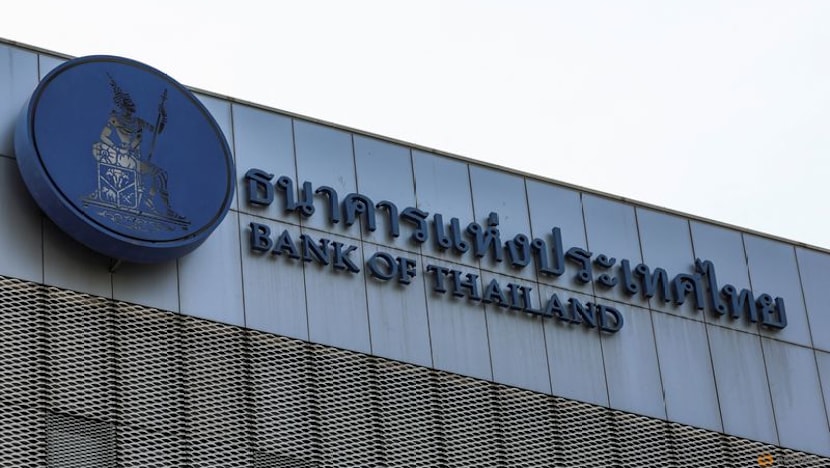Business
Bank of Thailand Set to Cut Rates by 25 Basis Points to Boost Economy

The Bank of Thailand (BOT) is expected to reduce its key policy rate by 25 basis points on October 8, 2023, in an effort to support a slowing economy. According to a recent poll conducted by Reuters, a strong baht has been adversely affecting tourism and exports, particularly in light of rising U.S. tariffs. The current key rate stands at 1.50 percent, one of the lowest among its regional peers, but central bank meeting minutes from August suggested that maintaining an accommodative monetary policy is critical for economic support.
In the Reuters poll, more than 70 percent of economists—19 out of 26 surveyed between September 29 and October 6—predict that the BOT will lower its one-day repurchase rate to 1.25 percent. While six economists expect no change, only one anticipates a more significant cut of 50 basis points. “Recent data indicate Thailand’s growth momentum is faltering,” noted Krystal Tan, an economist at ANZ. She highlighted that exports to the U.S. have declined significantly, and both agricultural and industrial outputs are weakening, compounded by subdued tourist arrivals. The strong baht has been eroding the country’s export competitiveness, having surged over 8 percent year-to-date before a slight easing.
Despite the growing consensus for a rate cut, some economists express caution regarding immediate reductions. Amonthep Chawla, head of the research office at CIMB Thai Bank, remarked, “I think a rate cut is doubtful for this meeting.” He emphasized that the decision should align with the short-term objectives of the central bank, while also considering the medium-term implications. “If something happens next year, we may not have enough buffer or policy space to tackle it,” he added.
Looking further ahead, over 60 percent of economists—13 out of 21—expect the policy rate to decrease to 1.25 percent by the end of 2025. The remaining analysts predict a more pronounced cut to 1.00 percent, although this view was held by only one economist in the August poll. Most analysts foresee rates stabilizing at 1.00 percent by the end of March 2024, remaining at that level throughout the year.
Economic forecasts indicate a growth rate averaging 2.0 percent for 2023, with a slight decline to 1.8 percent projected for 2026. Inflation is expected to average just 0.1 percent this year, rising modestly to 0.6 percent in the following year. Chawla noted that the economic recovery may not be robust in the latter half of 2023, with anticipated support from fiscal stimulus measures introduced by the new government. These measures aim to alleviate living costs and stimulate consumption, contributing to a gradual recovery expected by the second half of 2024.
As the BOT approaches its policy meeting, the decision to cut rates will weigh heavily on both immediate economic needs and long-term financial stability. The central bank’s actions will be closely monitored by economists and investors alike, as Thailand navigates a complex economic landscape shaped by external pressures and internal challenges.
-

 Business5 months ago
Business5 months agoKenvue Dismisses CEO Thibaut Mongon as Strategic Review Advances
-

 Lifestyle4 months ago
Lifestyle4 months agoHumanism Camp Engages 250 Youths in Summer Fest 2025
-

 Sports4 months ago
Sports4 months agoDe Minaur Triumphs at Washington Open After Thrilling Comeback
-

 Sports5 months ago
Sports5 months agoTupou and Daugunu Join First Nations Squad for Lions Clash
-

 Top Stories5 months ago
Top Stories5 months agoColombian Senator Miguel Uribe Shows Signs of Recovery After Attack
-

 World5 months ago
World5 months agoASEAN Gears Up for Historic Joint Meeting of Foreign and Economic Ministers
-

 Health4 months ago
Health4 months agoNew Study Challenges Assumptions About Aging and Inflammation
-

 Business5 months ago
Business5 months agoOil Prices Surge Following New EU Sanctions on Russia
-

 Entertainment4 months ago
Entertainment4 months agoDetaşe-Sabah Violin Ensemble Captivates at Gabala Music Festival
-

 Entertainment4 months ago
Entertainment4 months agoBaku Metro Extends Hours for Justin Timberlake Concert
-

 Top Stories5 months ago
Top Stories5 months agoRethinking Singapore’s F&B Regulations Amid Business Closures
-

 Business5 months ago
Business5 months agoU.S. House Approves Stablecoin Bill, Sends to Trump for Signature









